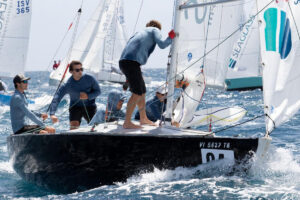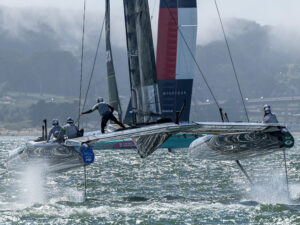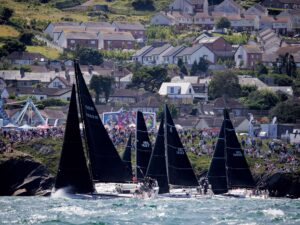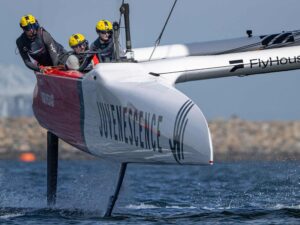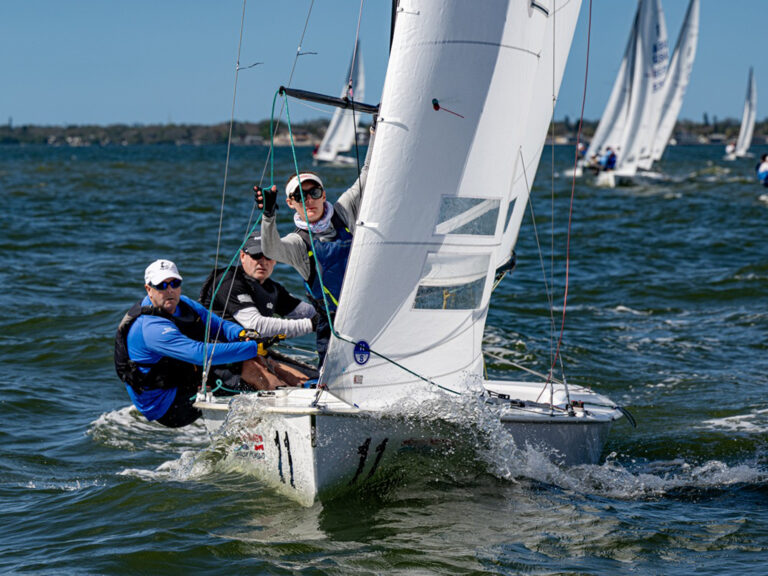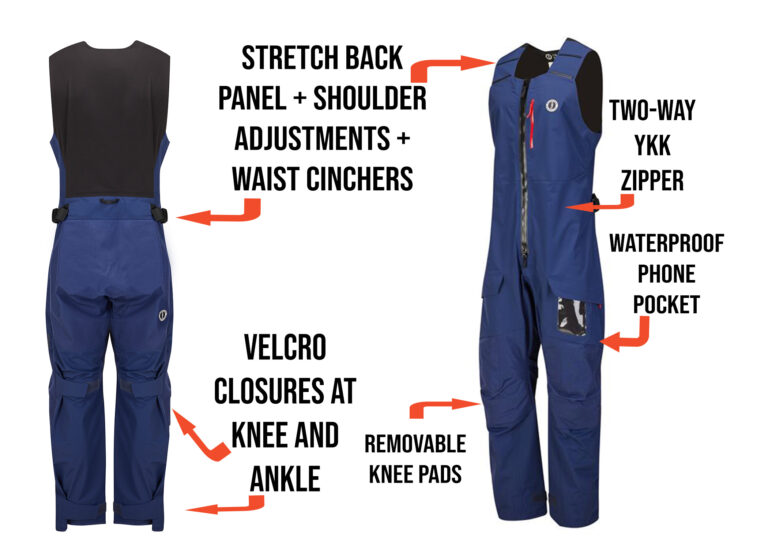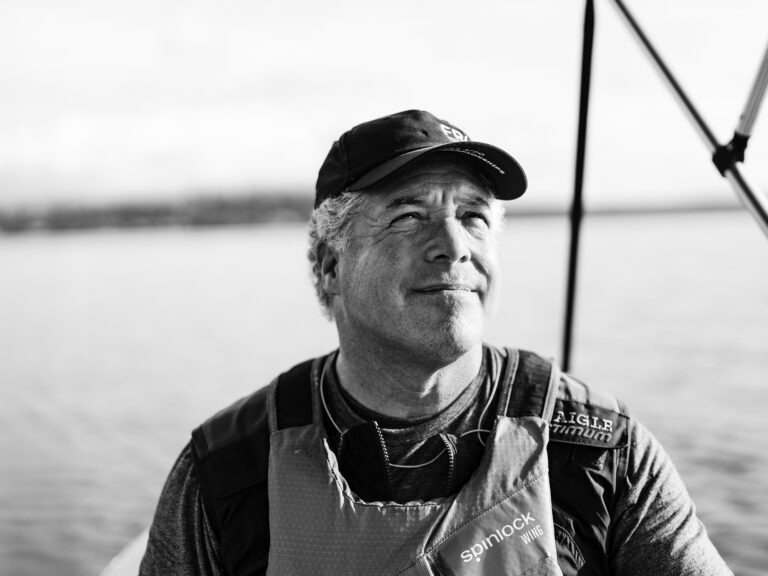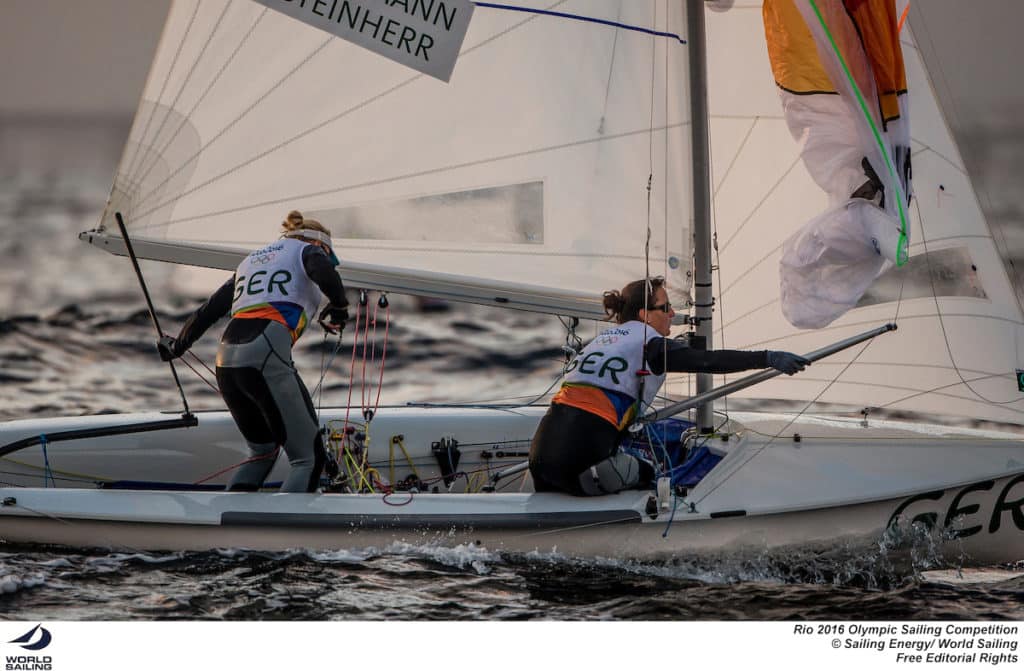
The Rio 2016 Olympic Sailing Competition
When Michael Phelps’s swim cap tore before the start of the final leg of the 4×200 freestyle relay on Thursday night, the media fawned over the drama. Phelps was loaned a spare cap by a teammate and went on to secure the gold medal for Team USA. No harm done, except perhaps to the sponsors of the shredded cap, Phelps showed that his gear made no impact on his ability to win the race.
For sailors, this is far from the reality. No amount of practice can prevent a bad finish as a result of equipment failure. They not only have to keep their bodies in peak condition, but their boats as well.
When breakages happen, it can sometimes be a matter of luck that the spare part is readily available. Caleb Paine was fortunate that, when he lost a mast chock during the first day of racing, his coach had a spare on his rib and they were able to replace it and continue racing, costing him only a few points to his overall score.
Other times, when equipment breaks it can put a team at a serious disadvantage for the rest of the regatta. The female German 470 team, Annika Bochmann and Marlene Steinherr will be sailing with an old mast for the rest of the week after their mast broke in half and their jib was damaged in a capsize, forcing them to DNF. They had already broken their best mast in training, and now have lost their spare, forcing them to compete with subpar equipment for the two remaining days of preliminary racing and, if they can climb back up the fleet, the medal race. They currently sit in 19th in a 20-boat fleet, and 24 points outside of a medal race spot with two races to earn it.
The Nacra fleet has been plagued with the most issues. In the opening race, the French team, Billy Besson and Marie Riou, came to a complete stop while fixing an unspecified issue with their rudder. On the same leg, the Brazilian team, Samuel Albrecht and Isabel Swan had a mainsheet failure that cost them a number of places in the fleet.
The next day, the American Nacra 17 team was battling its own equipment frustrations. Skipper Bora Gulari‘s trapeze wires were severing at the top of the mast. “You’re done with the race when that happens,” says crew Louisa Chafee. “It’s not something you can fix quickly. When it’s blowing 15-18 knots and your skipper is unable to provide leverage, you can’t do much.”
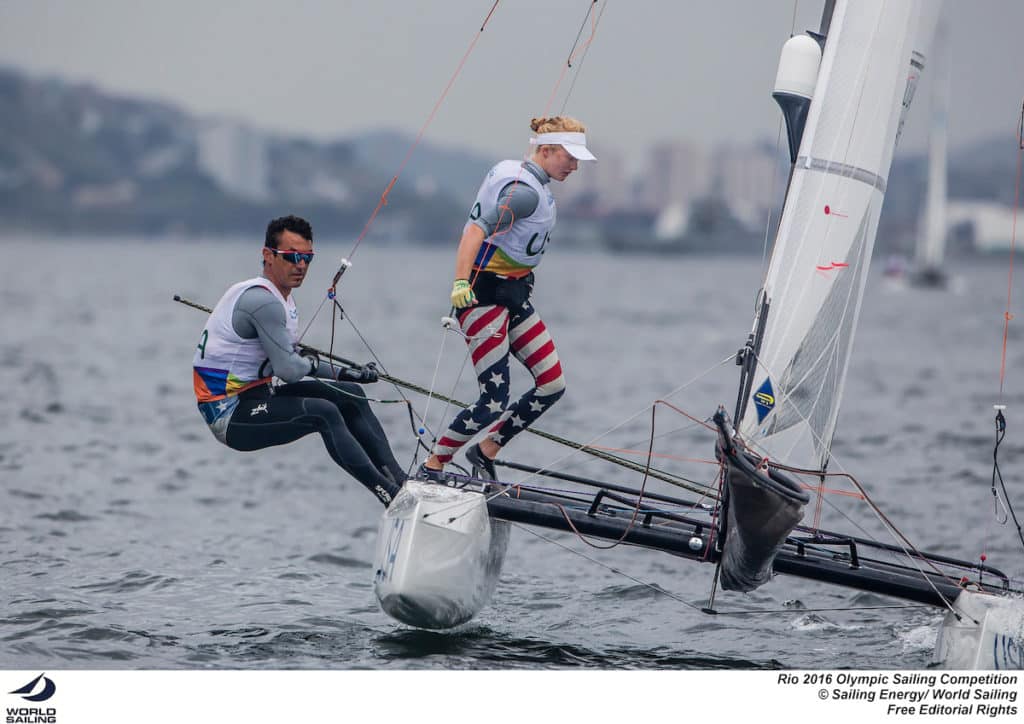
The Rio 2016 Olympic Sailing Competition
When they finally fixed the issue, they came back to finish fourth in the final day of racing before their reserve day. They returned Saturday to log a 9, 2 and an 8 on their scorecard.
“We reached our point where we said enough was enough and we needed to just go out there and perform how we know how,” says Chafee. “We know how to put down good results. We’ve just been hit with some bad luck. Luckily, our luck has changed and we made good decisions.”
Reserve days are built into the schedule not only give sailors a chance to rest their bodies, but also to repair their boats. With the exception of the Laser, Laser Radial and RS:X, sailors bring their own equipment to the Games. This also means they must bring their own replacement parts, and repairs rely entirely on the sailor and their support team. World Sailing’s team of judges inspects all repairs, especially if it involves replacing a piece of equipment that was previously approved, such as a boom or sail. Finn sailor Jonas Hogh-Christensen blewout the outhaul clew ring on his mainsail on Wednesday, and had to have the repaired sail measured and approved by World Sailing before being allowed back on the water on Thursday.

In the classes in which sailors compete in provided boats, the repairs are in the hands of the manufacturers on site, who examine the problem when the boat is back ashore and repair or replace the equipment to meet the same standards as the rest of the fleet. No major equipment failures have been reported in these classes yet. The RS:X fleets have their medal races today, and all their equipment has been in quarantine since last night. The RS:Xs will be inspected immediately before they head out to the Pao de Acucar course for their medal race.
The Lasers and Radials have a reserve rest day today, providing a break before their medal races on Monday. The skiffs are also off today, after two solid days of racing inside the bay.
The 470s return from a day off for racing on Copacabana, on the outside. When this fleet sailed on the outside course, Niteroi, on Thursday, they returned beaten and battered from the swell and breeze. Today should prove to be gentler. On the men’s side, the Croatians Sime Fantela and Igor Mareinc will be looking to solidify a lead over Australia’s Mat Belcher and Will Ryan. Belcher and Ryan had a bad first race on Wednesday that gave Fantela and Marenic an edge, but have since stayed in the single digits. Great Britain’s Luke Patience and Chris Grube have some catching up to do, but with four races to go in the preliminary round it’s entirely possible.
For the women, Great Britain’s Hannah Mills and Saskia Clark hold the lead for now, but the fleet is tightly packed at the top. Japan, France, USA, Slovenia and New Zealand all have a shot at stealing the lead from the London silver medalists in the next four preliminary races. USA’s Annie Haeger and Briana Provancha have improved each day on the water, and the upward trend could lift them into gold medal contention ahead of Wednesdays big race.
The Finns will race their final preliminary day, with a rest day scheduled for tomorrow and the medal race on Tuesday, with the Nacras on the same schedule. After day one, Great Britain’s Giles Scott seized the lead, but will have no chance to rest on his laurels today. Slovenia’s Vasilij Zbogar, the youngest in the class, has stayed right behind Giles despite some tactical errors and poor starts that caused some higher fleet finishes. Australia’s Jake Lilley rallied after a 16th and UFD on day one to climb back into third and solidly into medal contention, if he can keep his scores up today.
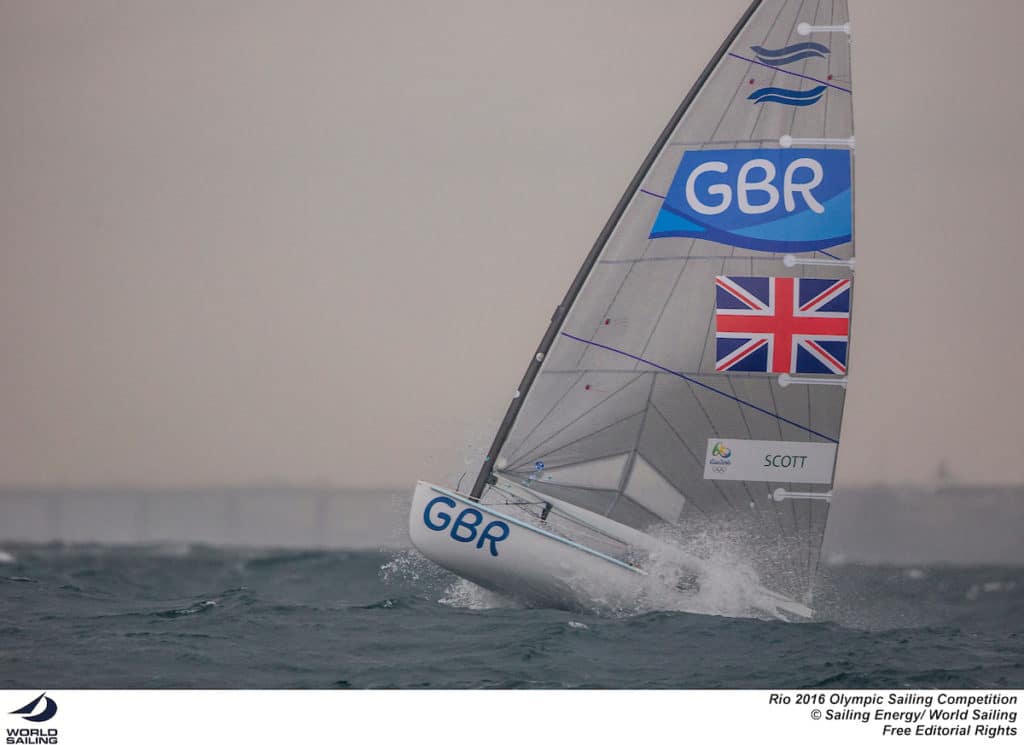
The Rio 2016 Olympic Sailing Competition
In the Nacras, France’s Billy Besson and Marie Riou suffered the first day of racing, due in part to an Besson’s cronic back injury. Yesterday they came back with force with a second followed by two bullets, but still sit in 7th overall. They’ll need a repeat of their day of dominance to climb back into contention for gold, and will need to avoid disaster today to get to the medal race. Australian cousins Lisa Darmanin and Jason Waterhouse, who lead the fleet going into the final day, were relieved that the French were back in fighting form. “They’re the best in the world and that’s who we want to be sailing against here,” says Darmanin. So far, the Aussies have managed to stay ahead, but had less impressive results yesterday, making them vulnerable to other well performing boats in the fleet.
Live tracking for all races is available at sailing.org. If you’re able to access your local broadcast or stream feeds, the medal races are on the TV courses.

